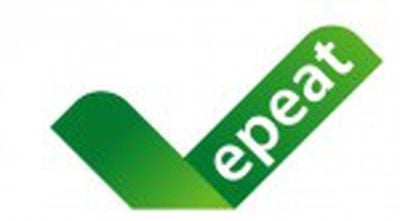San Francisco to Block Most Municipal Mac Purchases Following Apple's EPEAT Withdrawal
 Following last week's news that Apple had pulled all 39 of its qualifying Macs from the Electronic Product Environmental Assessment Tool (EPEAT) registry, it was suggested that Apple would lose business with federal, state, and local governments in the United States. Many agencies require that most or all computer purchases be limited to products listed on the EPEAT registry.
Following last week's news that Apple had pulled all 39 of its qualifying Macs from the Electronic Product Environmental Assessment Tool (EPEAT) registry, it was suggested that Apple would lose business with federal, state, and local governments in the United States. Many agencies require that most or all computer purchases be limited to products listed on the EPEAT registry.
As noted by The Wall Street Journal's CIO Journal, the city of San Francisco has become one of the first such entities to confirm that it will be barring most purchases of Apple computers.
Officials with the San Francisco Department of Environment told CIO Journal on Monday they would send out letters over the next two weeks,informing all 50 of the city’s agencies that Apple laptops and desktops “will no longer qualify” for purchase with city funds. [...]
“We are disappointed that Apple chose to withdraw from EPEAT,” said Melanie Nutter, director of San Francisco’s Department of Environment, “and we hope that the city saying it will not buy Apple products will make Apple reconsider its participation.”
City agencies will still be able to ask for waivers of the policy, but San Francisco’s chief information officer Jon Walton calls that process a "long" and "onerous" one that will make it "very problematic to procure Apple products."
The report notes that the impact of San Francisco's decision on Apple's bottom line will be negligible given that only about 1-2% of the city's computers are Macs, representing 500-700 machines. The most recent city data available from 2010 listed purchases totaling roughly $45,000 in Macs and iPads, and iPad purchases would continue to be allowed given the absence of any EPEAT registry for tablets.
Still, with many other governmental agencies potentially making similar purchasing decisions related to Apple's withdrawal from the EPEAT registry and a possible filtering-down effect that could see other businesses adopting similar stances, Apple could face challenges in increasing its share of the PC market among enterprise and government clients.
Popular Stories
Apple's next-generation iPhone 17 Pro and iPhone 17 Pro Max are less than three months away, and there are plenty of rumors about the devices.
Apple is expected to launch the iPhone 17, iPhone 17 Air, iPhone 17 Pro, and iPhone 17 Pro Max in September this year.
Below, we recap key changes rumored for the iPhone 17 Pro models:Aluminum frame: iPhone 17 Pro models are rumored to have an...
The long wait for an Apple Watch Ultra 3 appears to be nearly over, and it is rumored to feature both satellite connectivity and 5G support.
Apple Watch Ultra's existing Night Mode
In his latest Power On newsletter, Bloomberg's Mark Gurman said that the Apple Watch Ultra 3 is on track to launch this year with "significant" new features, including satellite connectivity, which would let you...
The upcoming iPhone 17 Pro and iPhone 17 Pro Max are rumored to have a slightly different MagSafe magnet layout compared to existing iPhone models, and a leaked photo has offered a closer look at the supposed new design.
The leaker Majin Bu today shared a photo of alleged MagSafe magnet arrays for third-party iPhone 17 Pro cases. On existing iPhone models with MagSafe, the magnets form a...
iOS 26 and iPadOS 26 add a smaller yet useful Wi-Fi feature to iPhones and iPads.
As spotted by Creative Strategies analyst Max Weinbach, sign-in details for captive Wi-Fi networks are now synced across iPhones and iPads running iOS 26 and iPadOS 26. For example, while Weinbach was staying at a Hilton hotel, his iPhone prompted him to fill in Wi-Fi details from his iPad that was already...
The iPhone 17 Pro Max will feature the biggest ever battery in an iPhone, according to the Weibo leaker known as "Instant Digital."
In a new post, the leaker listed the battery capacities of the iPhone 11 Pro Max through to the iPhone 16 Pro Max, and added that the iPhone 17 Pro Max will feature a battery capacity of 5,000mAh:
iPhone 11 Pro Max: 3,969mAh
iPhone 12 Pro Max: 3,687mAh...
Apple today seeded the second betas of upcoming iOS 18.6 and iPadOS 18.6 updates to public beta testers, with the betas coming just a day after Apple provided the betas to developers. Apple has also released a second beta of macOS Sequoia 15.6.
Testers who have signed up for beta updates through Apple's beta site can download iOS 18.6 and iPadOS 18.6 from the Settings app on a compatible...
Apple is developing a MacBook with the A18 Pro chip, according to findings in backend code uncovered by MacRumors.
Subscribe to the MacRumors YouTube channel for more videos.
Earlier today, Apple analyst Ming-Chi Kuo reported that Apple is planning to launch a low-cost MacBook powered by an iPhone chip. The machine is expected to feature a 13-inch display, the A18 Pro chip, and color options...
 Following last week's news that Apple had pulled all 39 of its qualifying Macs from the Electronic Product Environmental Assessment Tool (EPEAT) registry, it was suggested that Apple would lose business with federal, state, and local governments in the United States. Many agencies require that most or all computer purchases be limited to products listed on the EPEAT registry.
Following last week's news that Apple had pulled all 39 of its qualifying Macs from the Electronic Product Environmental Assessment Tool (EPEAT) registry, it was suggested that Apple would lose business with federal, state, and local governments in the United States. Many agencies require that most or all computer purchases be limited to products listed on the EPEAT registry.


















